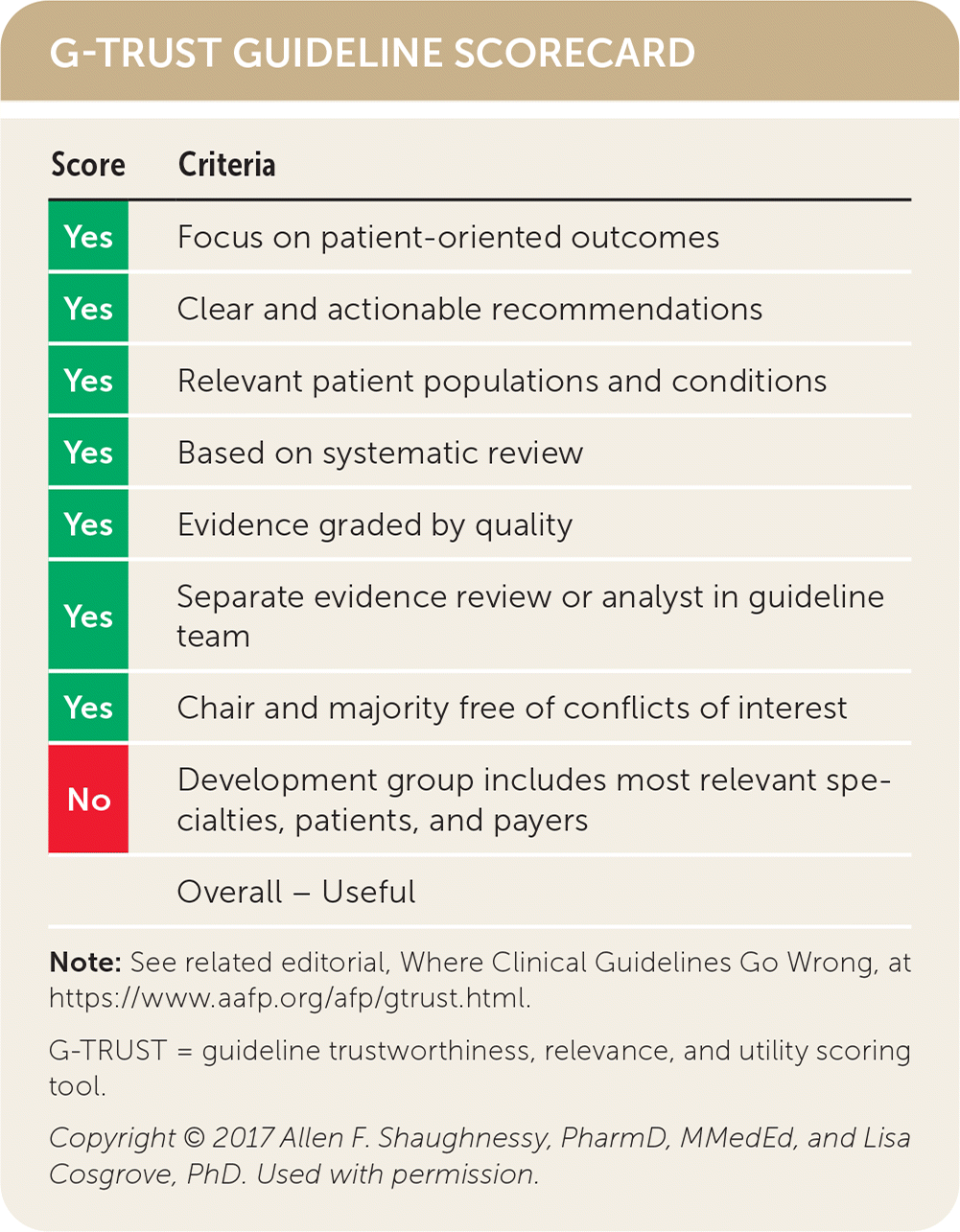
Am Fam Physician. 2023;107(5):552-553
Author disclosure: No relevant financial relationships.
Key Points for Practice
• Platelet transfusions appear to increase mortality in patients with GI bleeding who are taking antiplatelet agents.
• Patients should continue taking aspirin for secondary cardiovascular protection in GI bleeding because stopping aspirin does not improve bleeding outcomes and may increase mortality.
• Prothrombin complex concentrates do not appear beneficial for GI bleeding related to direct oral anticoagulants but may be beneficial for patients taking warfarin.
From the AFP Editors
The major risk of taking antithrombotic medications, including antiplatelet and anticoagulation agents, is gastrointestinal (GI) bleeding. The optimal means of managing bleeding episodes is uncertain. The American College of Gastroenterology (ACG) and Canadian Association of Gastroenterology conducted a systematic review to publish guidelines for managing GI bleeding for patients who are taking antithrombotic medications.
Antiplatelet Medications
When patients who take antiplatelet medications have GI bleeding, platelet transfusions may be harmful. In a small cohort study, patients receiving platelet transfusions had an increased risk of death over patients who did not receive platelet transfusions, with no difference in further bleeding or thrombotic events.
ASPIRIN
When patients taking aspirin for secondary cardiovascular protection present with GI bleeding, stopping aspirin is not helpful, and it may increase cardiovascular risk. Because aspirin causes permanent platelet inhibition that lasts for at least three days after stoppage, stopping aspirin is unlikely to reduce bleeding. In one small retrospective study, continued bleeding and mortality were similar whether aspirin was stopped or not. If aspirin is stopped for bleeding concerns, restarting aspirin shortly after surgery reduces cardiovascular and gastrointestinal mortality without increasing recurrent bleeding.
Because of the little to no benefit of aspirin for primary cardiovascular prevention, stopping aspirin in these patients is recommended with any gastrointestinal bleeding.
P2Y12 INHIBITORS
When patients have GI bleeding while taking P2Y12 inhibitors, such as clopidogrel, ticagrelor (Brilinta), and prasugrel (Effient), evidence is less clear. From studies of endoscopy for patients receiving dual antiplatelet therapy, stopping the P2Y12 inhibitor does not appear to reduce bleeding. Although up to 6% of patients receiving dual antiplatelet therapy will have stent thrombosis if the P2Y12 inhibitor is stopped for 10 days, the risk of stent thrombosis with a stoppage of up to four days appears minimal.
Direct Oral Anticoagulants
When patients have GI bleeding while taking direct oral anticoagulant medications, prothrombin complex concentrates may not be effective. Evidence is limited to small studies with patients who had GI bleeding while taking dabigatran (Pradaxa), where prothrombin complex concentrates did not improve outcomes over conservative care.
RIVAROXABAN OR APIXABAN
Andexanet alfa (Andexxa), a modified recombinant human factor Xa decoy protein, sequesters apixaban (Eliquis) and rivaroxaban (Xarelto). Andexanet alfa reduces the activity of apixaban and rivaroxaban by more than 90%, but the only clinical trial lacks a control group for clinical outcome comparison. It should be avoided until more data regarding its effectiveness are available.
DABIGATRAN
Idarucizumab (Praxbind), a monoclonal antibody to reverse the effects of dabigatran, does not appear to improve outcomes in patients with GI bleeding who are taking dabigatran. In a retrospective study, administering idarucizumab did not reduce mortality over conservative care. Venous thromboembolism does not appear to increase with idarucizumab, so use may be justified in cases of life-threatening bleeding.
Warfarin
When patients taking warfarin have GI bleeding, prothrombin complex concentrates may be beneficial. After prothrombin complex concentrate infusion, the international normalized ratio rapidly improves, although one-fourth of patients continue to have GI bleeding. Risks include thrombotic events affecting 7% of patients and fluid overload in 5% of patients.
Fresh frozen plasma appears to be less effective than prothrombin complex concentrates, with possibly higher mortality. Vitamin K is not effective in GI bleeding because the change in international normalized ratio after vitamin K takes at least 24 hours.

| Score | Criteria |
|---|---|
| Yes | Focus on patient-oriented outcomes |
| Yes | Clear and actionable recommendations |
| Yes | Relevant patient populations and conditions |
| Yes | Based on systematic review |
| Yes | Evidence graded by quality |
| Yes | Separate evidence review or analyst in guideline team |
| Yes | Chair and majority free of conflicts of interest |
| No | Development group includes most relevant specialties, patients, and payers |
| Overall – Useful |
Editor's Note: Many of our patients are taking antithrombotic medications, and the limited evidence for treating the major adverse event of GI bleeding is important. I needed the reminder that stopping aspirin used for secondary cardiovascular protection is too slow to reduce bleeding and can worsen cardiovascular outcomes. For emergent treatments, I was surprised that platelet transfusions may be harmful and was surprised how uncertain the evidence is for other treatments.—Michael J. Arnold, MD, Contributing Editor
The views expressed in this article are those of the author and do not necessarily reflect the official policy or position of the U.S. Navy, Uniformed Services University of the Health Sciences, U.S. Department of Defense, or the U.S. government.
Guideline source: American College Gastroenterology
Published source: Am J Gastroenterol. April 1, 2022;117(4):542–558.
Available at: https://academic.oup.com/jcag/article/5/2/100/6549718
